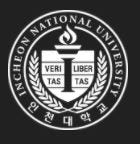Incheon National University Researchers Demonstrate the Negative Effects of a Warmth Appeal in Advertisements
A brand’s relationship with its consumers is of the utmost importance and something advertisers are constantly looking to strengthen. Thus, warmth appeals have been used in many advertisements to improve brand evaluations and brand relationship. However, there is limited and conflicting research on this. Now, a group of researchers from Korea and the USA have shown the negative effects of using a warmth appeal in advertisements. This study provides an important lesson for brand managers and advertising professionals.
The advertiser-consumer relationship is one of the pillars of marketing and advertising. To strengthen this relationship, advertisers use a warmth appeal (which is a way to promote a warm, caring perception of the brand) in advertisements. This is expected to improve brand evaluations by promoting positive emotions in the consumer. However, limited research has been conducted to study the effects of a warmth appeal within psychology and marketing theories, leading to mixed results among studies looking at its effect on a brand’s consumer perception.
Set against this backdrop, a group of researchers have demonstrated the negative effects of warmth appeal. The study led by Prof. Taemin Kim from Incheon National University in Korea was published in the Journal of Advertising on August 19, 2021.
“Perceptions of a brand’s warmth and competence are considered good and scientific measures in many consumer psychology studies for brand management. Marketers want to know how people perceive brands in various conditions and how they can improve the perceptions of the brands. This helps them manage brands more strategically and scientifically,” says Prof Kim, explaining the team’s motivation behind the study.
The team conducted two studies using a slightly different approach — they applied the concept of a compensating effect between competence and warmth, which stems from social psychology. The first study focused on product categories and their association with perceived warmth and brand competence. They found that for products typically viewed as “strong” (e.g., detergent, or car tires), the brand’s perceived competence lowers when a warmth appeal is used. This is termed the compensation effect. The weakened brand competence resulted in lower product quality perceptions. On the other hand, for a product that is typically viewed as “gentle”, the brand’s perceived competence increases when a warmth appeal is used. This is termed the halo effect. For the second study, a consumer’s regulatory focus was chosen as a moderator. The team found that the compensation effect between perceived brand warmth and competence caused by the warmth advertising appeal worsened among those who focused on prevention rather than promotion.
Both these studies also revealed that a brand’s competence mediated the compensation effect on perceived product quality.
Even though common-sense dictates that a warmth appeal would be helpful for a brand’s image, this study revealed its negative effects. This is the first study to identify a compensation effect between warmth and competence in advertising and helps us understand how a brand’s behavior on social or digital media can affect its evaluations.
“Brand managers should use warmth appeals in advertising strategically to avoid unexpected side effects of these appeals and enhance brand evaluations. They should think about what product category the brand belongs to and who their target customers are, and use simpler, more scientific measures to manage their brands well,” concludes Prof. Kim.
Reference
DOI: https://doi.org/10.1080/00913367.2021.1940393
Title of original paper: Unintended Consequences of Warmth Appeals: An Extension of the Compensation Effect between Warmth and Competence to Advertising
Journal: Journal of Advertising
*Corresponding author’s email: taemin.kim@inu.ac.kr
About Incheon National University
Website: http://www.inu.ac.kr/mbshome/mbs/inuengl/index.html
